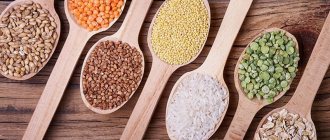Author Peter Ermilin
05.12.2008 13:13 (Updated: 19.01.2020 01:23)
Health » Health and prevention
People have known about the healing properties of lemon since ancient times. It was used not only to treat colds, but also for many other diseases. Still would! After all, according to modern medicine, this citrus fruit strengthens the immune and circulatory system, activates metabolism, improves the condition of skin, hair and nails, eliminates excess weight, saturates the body with vitamins and rejuvenates it.
In the Middle Ages, there was a belief that lemon protected against plague and snake bites. Lemon juice was used to treat wounds, fractures, and was taken orally for pulmonary diseases and poisoning. Healers “prescribed” lemon for tuberculosis, gastritis with low acidity, rheumatism, gout, jaundice, scurvy, edema and bladder stones.
Lemon saturates the body with various vitamins, antioxidant substances, as well as macro- and microelements. The table shows the composition per 100 grams of lemon:
| Name of substance | Percentage of daily requirement |
| Vitamin C | 128% |
| Vitamin B6 | 5% |
| Vitamin B1 | 3% |
| Vitamin B2 | 5% |
| Vitamin B3 | 5% |
| Copper | 13% |
| Calcium | 6% |
| Potassium | 4% |
| Iron | 4% |
| Manganese | 3% |
Modern doctors advise gargling your throat and mouth with an aqueous solution of lemon juice for inflammatory infections, as well as making lotions from lemon juice for gangrene, hemorrhoids and fungal infections of the skin. It is no coincidence that cosmetologists recommend wiping your face with lemon water or lotions that contain lemon - they perfectly whiten the skin.
Description of lemon
Lemon is a small subtropical evergreen tree up to 3-4 (7) m high with a pyramidal or spreading crown, with short spines and reddish tips of shoots, or a perennial shrub. Lemon leaves are petiolate (petioles not winged), oblong-ovate or elliptical, pointed, finely toothed, leathery, shiny, with a lemon scent. Lemon flowers are single or paired, located in the axils of the leaves, white, purple or reddish-violet on the outside, fragrant; calyx five-toothed; corolla 4-8-petalled. The lemon fruit is berry-shaped, oval, often ovoid, 6-10 cm long or more, four to eight cm in diameter, at the top and base elongated into wide low papillae, up to 500 g, light yellow, with a lemon smell; the peel is of medium thickness with convex glands, difficult to separate from the pulp; the pulp is divided into 6-8 radially located segments-nests with soft, dense walls, easily separated from each other when ripe, juicy, sour or sweet and sour; each lobule contains a large number of spindle-shaped to oval juicy bodies - juice sacs, oriented along the radius of the fruit, each juice sac has a long thread-like leg, with which it is attached to the wall of the lobule (juice sacs are attached only to the dorsal wall). Lemon seeds are medium-sized, ovoid, oval, angular, smooth or wrinkled, off-white in color, with one or more embryos, with green or white cotyledons, located along the ventral seam of the lobule. Lemon blooms from April-May for several months. Lemon fruits ripen almost all year round, most often in November-February, before frost sets in. There are about 30 species of lemon in the world, from which dozens of hybrid forms have been created.
Lemon raw material
Ripe lemon fruits without peel - fructus Citri, peel (zest) - exocarpium Citri, lemon oil - oleum Citri. Fruits with the stem torn out are not allowed. The ugly shape of a lemon indicates improper physiological formation; such fruits are of low quality. Lemon oil is obtained by pressing fresh peels (during distillation with steam, the natural smell is largely lost). It is a clear or slightly greenish liquid with a lemon odor and a pleasant taste with a bitter aftertaste; stored in dark, well-closed bottles, filled to the top, in a 10% ethanol solution; When stored, it thickens and goes rancid; used as a means of correcting the taste and smell of drugs.
Chemical composition of lemon
Lemon fruits contain: ascorbic acid (up to 45-140 mg%), up to 0.04 mg% thiamine, up to 0.02 mg% riboflavin, up to 0.06 mg% pyridoxine, up to 0.2 mg% pangamic acid, 0. ,01-0.02 mg% β-carotene, up to 0.2 mg% vitamin E, up to 500 mg% P-active substances, vitamin D, glycosides of various structures, essential oil, flavonoids, diosmin (flavone), hesperidin, erythrocitrin , phytoncides, sesquiterpenes, cytosterol, 0.5% pectin substances, up to 6% organic acids (6.9-8.1% citric, malic), 2.06-6% sugars (0.6-1% fructose, in pulp - mainly sucrose (0.74-1.2%), in the peel - glucose (0.8-1.3%)) - sugars in lemon are 2.5 times less than in grapefruit, 3 times less, than in orange, and 4 times less than in tangerine, derivatives of coumarins, limethine - citrapten, auraptene, bioxengelicine, bergamottin, potassium compounds (163 mg%), calcium (40 mg%), magnesium (12 mg%), sodium (11 mg%), iron (0.6 mg%), sulfur (10 mg%), phosphorus (22 mg%). Lemon peel contains: 0.4-0.6% essential oil, P-active substances, citrine derivatives, 7-β-ritinosides, flavonoids, diosmin, flavanones hesperidin and eriodictyol, furocoumarins. Lemon essential oil contains: 95% terpenes, L-limonene (90%), citral (3.5-6%) - odor carrier, citronellol, 4-7% geraniol and its aldehyde, 1% geranyl acetate, D-pinene, L -camphene, phellandrene, methylgentenone, octyl- and nonylaldehydes, D-terpeneol and other compounds. Lemon seeds contain: fatty oil, bitter substance limonin, bitterness. Lemon leaves contain up to 0.3% essential oil, 55-885 mg% ascorbic acid, vitamin P. Lemon branches and leaves contain: 0.09-0.24% essential oil. Bark - glycoside citronin.
Action and use of lemon
Citric acid dissolves uric acid and its deposits in joints and cartilage, preventing the development of atherosclerosis. Vitamins C and P increase the resistance of capillary walls, have an antitoxic, anti-sclerotic effect, and increase the body's immuno-biological reactions. Lemon is an anthelmintic. Of all citrus fruits, lemon fruits have the greatest healing effect. They are used for febrile diseases, for the prevention of hypo- and avitaminosis C and B, atherosclerosis, as an additional remedy for jaundice, edema, urolithiasis, rheumatism, gout, gastritis with low acidity. Lemon and lemon juice are indicated for diseases of the gastrointestinal tract, mineral metabolism disorders, urolithiasis, gout, and rheumatism. Lemon slices sprinkled with sugar are used for heart diseases, especially inflammatory ones (myocarditis, rheumatism). Fresh lemon juice is used against scurvy, sore throat, pharyngitis; It was used to lubricate diphtheria plaques in the throat. Lemon juice mixed with water is used for liver diseases, febrile and inflammatory diseases, for rinsing the mouth and throat for sore throat, inflammatory processes of the oral mucosa, and externally for lotions for skin mycoses and eczema. Lemon peel boiled in sugar is used to improve digestion. If you lubricate your forehead and temples with heated lemon pulp, it helps with headaches caused by heat. Externally, freshly cut lemon was applied to the epigastric region in the form of a mustard plaster for vomiting in pregnant women, as a distracting remedy. Lemon essential oil and lemon syrup are used to improve the taste and smell of medicines; Citral is isolated from essential oil, which in the form of a 1-3% ethanol solution is used to treat hypertension.
Health Benefits
Consumption of vegetables and fruits has always been associated with a reduced risk of various diseases. Here are just some of the health benefits of consuming lemons.
Reducing the risk of heart disease
According to American researchers, regular consumption of lemons helps reduce the risk of developing coronary heart disease, and in women the percentage of disease prevention is much higher than in men (about 19%). In addition, consuming fiber from citrus fruits has been found to be effective in lowering blood cholesterol levels. The essential oils contained in lemon play a similar function in the human body.
Fight against cancer
Being a very rich source of the powerful antioxidant vitamin C, lemons and the juice of these fruits help fight cancer-causing free radicals.
Boosting immunity
Foods high in ascorbic acid and other antioxidants help the immune system fight germs that cause colds or flu. For this reason, it is important to include lemons and other citrus fruits, such as oranges, tangerines, and pomelo, in your menu during the cold season.
Anemia protection
Iron deficiency is one of the most common causes of anemia.
Eating foods rich in vitamin C, such as lemons, will help enhance the body's absorption of this mineral. Studies have shown that the combination of ascorbic acid and ferrum promotes better absorption of these beneficial substances. For this reason, a salad of spinach leaves dressed with lemon juice is an extremely effective remedy against anemia.
Preventing Asthma
Scientists have made an interesting discovery. It turns out that people lacking ascorbic acid are more likely to develop asthma. If you want to protect yourself from this disease, drink tea with lemon.
Maintaining a healthy complexion
Lemon, as a source of vitamin C, is essential for maintaining healthy and youthful skin. The thing is that this sour fruit is important for the production of collagen, which, in fact, is responsible for maintaining skin health. In addition, antioxidants protect the epidermis from solar radiation and the environment.
Lemon recipes
- Hypertensive patients usually consume the pulp of half (30-50 g) or one (70-100 g) lemon along with the peel at one time, 3-4 times a day; Diabetic patients are treated with fresh lemons according to the same scheme.
- If you have kidney stones, gallstones, or gout, drink 120 g of lemon juice daily.
- To stop nosebleeds, apply fresh lemon juice.
- In case of exacerbation of chronic hemorrhoids, drink 2 tablespoons of lemon juice every 2 hours.
- 2 tablespoons of raw material (30-40 g) are poured into 400 ml of water, boiled over low heat for 30 minutes, filtered, and taken 0.5 cups 3 times a day before meals.
Beneficial features
Lemons contain a large number of different chemicals that scientists believe have beneficial properties for humans.
By the way, the characteristic smell of lemons is the “work” of the terpene D-limonene (a class of carbons). And citric acid, contained in large quantities in the fruit, is responsible for the sour taste.
These yellow citrus fruits are also known for their high concentrations of ascorbic acid (vitamin C), a deficiency of which causes serious illness. Interestingly, 100 ml of lemon juice contains almost 50 mg of vitamin C, which is more than half the recommended daily intake. Due to its high ascorbic acid content, lemon has gained fame as a tonic, beneficial for the digestive and immune systems, as well as for skin health. But not everything is so rosy. Ascorbic acid in lemon juice is destroyed very quickly: after 8 hours at room temperature, lemon juice loses approximately 20 percent of vitamin C; in the refrigerator, the same amount of vitamin evaporates after 24 hours of storage.
But flavonoids contained in lemons, according to scientists, have anti-cancer properties. They inhibit the growth of malignant cells and remove carcinogens from the body. In Ayurvedic practice, a glass of warm water with lemon juice is a means of toning the liver and removing toxins from it.
In addition, lemons are useful for preventing diabetes, constipation, hypertension, indigestion, and also for maintaining healthy hair, teeth, skin, and nails. And urologists are confident that lemon juice eliminates the risk of kidney stones because it promotes the production of urinary citrate, which prevents the formation of crystals.
The benefits of lemons are due to their rich chemical composition. This fruit supplies the body with such elements as:
- vitamin C;
- B vitamins;
- vitamin A;
- vitamin E;
- copper;
- iron;
- calcium;
- magnesium;
- zinc;
- potassium;
- phosphorus;
- flavonoids.
Lemon juice is useful for:
- throat infections;
- kidney stones;
- increased risk of stroke;
- low body temperature;
- stomach diseases;
- constipation;
- dental problems;
- fever;
- rheumatism;
- arthritis and polyarthritis;
- burns;
- obesity;
- breathing problems;
- cholera;
- weakened immune system.
Lemon cosmetics
Lemons are used for external use in cosmetics: to remove freckles and other age spots, as part of nourishing creams, ointments, emulsions, lotions, and also used for their fragrance. Lemon water softens and whitens facial skin; it is used in a mixture with beaten egg white, glycerin and cologne to get rid of freckles, age spots, and rejuvenate facial skin; Lemon juice heals cracks in the skin and reduces brittleness of nails.
- A lemon-honey suspension consisting of 1 part lemon juice and 2 parts honey (1 tablespoon of juice and 2 tablespoons of honey) is taken against freckles, other skin pigmentation, acne, traumatic cyanosis, and bruises.
- Dry skin is wiped in the morning with an emulsion swab: 100 g of fresh cream, 1 yolk, juice of 1 lemon, 5 g of glycerin and 100 ml of cologne.
- For freckles, porous skin, and acne, wipe the skin daily with eau de toilette: juice of half a lemon, 100 g of full-fat milk, 15 g of 40% ethanol, 10 g of sugar.
- A mask of the juice of 1 lemon, 1 egg white, 10 g of sugar, 100 g of distilled water is applied to a cleanly washed face for 20-30 minutes (every other day), rinsed off with warm water.
- A nourishing mask for dry skin made from 20 g of lemon juice, 10 g of spermaceti, 10 g of beeswax and 5 g of 96% ethanol is applied to the facial skin in a thin layer for 20-30 minutes.
Benefits of Lemon Water
The benefits of this drink are talked about all over the world. It is customary to drink it warm on an empty stomach. It is said that drinking lemon water daily not only strengthens the immune system, but also prevents the development of incurable diseases. You can prepare this drink in just a couple of minutes in the morning. Simply squeeze half or a whole lemon into a glass of warm water.
Warm water itself, drunk on an empty stomach, is an excellent start to a new day, as it promotes the proper “start-up” of all organs, especially the digestive system. Lemon juice flushes out toxins and waste from the body, activates the liver and intestines, and has a mild diuretic effect.
Like whole fruits, lemon water strengthens the immune system, affects skin health, and enriches the body with additional energy. But perhaps the most paradoxical property of this sour citrus drink is that it reduces the overall acidity of the body. This acidic product, when entering the body, becomes alkaline and thus neutralizes excess acid in the body (for example, uric acid in the joints, which causes inflammation and pain).
Another benefit of drinking lemon water daily is improving your mood.
Scientists have proven that the aroma of citrus fruits affects brain cells, improving overall well-being and mood, relieving depression and anxiety.
Also, although lemon water contains almost no calories, it is still a good source of energy.
Lemon cooking
Lemon is consumed in its natural form; it gives dishes a specific aroma, a pleasant sour taste, and enriches them with vitamins; fruits are widely used in the confectionery, food and alcoholic beverage industries for the preparation of preserves, jam, marmalade, candied fruits, syrup, sweets, compote, soft drinks, juices, fruit waters, essences, liqueurs; peeled lemon, cut into thin slices, served with coffee, tea, cold fish dishes, liquid solyanka in a frying pan. When preparing sauces, drinks, and sweet dishes, lemon zest, which contains the largest amount of essential oils, is widely used. When preparing meat, fish, mushroom and egg-butter sauces, fresh lemon juice is mainly used; lemon juice is poured over fried kidneys and game. Lemon with skin, cut into slices, is served with barbecue, fish and meat products fried on a spit. The peel (zest) cut from the lemon is finely chopped, air dried, placed in jars with tight-fitting lids and stored in a dry room. Jam with oranges. Lemons and oranges are peeled and cut into small pieces; zest removed from oranges, pour apple juice (1 glass) and boil until softened, immerse lemons and oranges cut into pieces, add sugar (1.3 kg per 1 kg of fruit) and boil over low heat with constant stirring in one step until ready; After cooling, the jam is transferred to jars, covered with paper and tied.
Other properties of lemon
Essential oil is used in the perfume industry. Fresh juice removes stains (ink, wine, tea) from the surface of cotton clothing and materials, and removes rust from the surface of metal utensils. After rubbing with lemon, keep the stained areas in the sun for 0.5-1 hour, then rinse with warm water. After smearing with lemon juice, rusty metal utensils are immediately wiped with a rag and washed with water.
Benefits in cosmetology
The product in question is useful not only from the standpoint of promoting health. This is an indispensable product for healthy nails, hair and skin. Using lemon juice you can restore your hair:
- eliminate fat content;
- give them a natural shine;
- get rid of static electricity and dandruff.
Lemon is good for the skin. It eliminates acne and small wrinkles, nourishes and moisturizes the upper layers of the epidermis. The fruit is also good for nails. Above we looked at what vitamins are in lemon - many of them effectively fight fungus and strengthen the surface. Regular use of a lemon bath is a chance to forget about problems with your nail plates and make them smooth.






